On November 6th, 2017, I had a conversation with What’s the Frequency‘s creator, James Oliva. What’s the Frequency is a new “psychedelic noir” audio drama that currently has three episodes out. You can find What’s the Frequency on any major podcast streaming platform, or on their website.
I’ve talked about how much I’m enjoying What’s the Frequency so far, but I was happy to have the opportunity to discuss the show in more depth. We wound up having a two-hour long conversation about audio drama as a format, trusting your cast, daring to do something different, the horror genre as a whole, terrible children’s films, and so much more–so to be transparent, what you’ll read here is abridged.
But hey, if you want recommendations from the word of Oliva for essays on gender and feminist theory in horror or awful, awful movies for children from the 60’s, leave a comment down below, and I’m more than happy to share.
Podcast Problems: So, first off, I have a lot of trouble describing your show to people. I think that the psychedelic noir is the perfect descriptor for it, but for readers, I would love to hear how you explain your show.
I explain it incredibly poorly, because I always get caught up in the intricacies of things, especially when it’s my own—so like, you know, I’ll be giving a synopsis and I’ll be like, “Yeah, but then there’s this like other little caveat that you gotta really consider—’’
Those are so important to your show, though.
Yeah! Well, you know what it is, I see all the micro and not as much of the macro—I’m so involved in all the little minor details and the things that interest me, and me going like, “Ooh, this is a neat little thing.” It’s really hard sometimes to take those back out and make it so general. I think it’s really hard to say. I mean, at this point in time, you know, how the show is described, I came up with the subtitle tag of “psychedelic noir” . . . at this point and time, we are on the kind of on throwback to some of the older radio play stuff, with certain regards. We’re really big on deeply enriching the world with sounds that help communicate what’s happening–we certainly don’t go out of your way to describe, like, “Oh my god! You’re holding that pen in your hand!”
Right, exactly. There’s so much scene setting with so little tangible descriptions, and I love that—that’s actually one of the first things that really attracted me to the show was you have this great sense for sort of wordless exposition, and a lot of that is, like you said, through the sound and just the texture. There’s also this really intense, specific aesthetic to the show, even though it’s completely audio.
This was actually the task from the start was that we wanted to paint the audio with sound—which sounds weird, “We wanted to paint with our audio!” We’re in this medium, like film is going to accentuate the visual image, and also use the visual image to tell the story beyond just the actual plot itself and whatnot. So if we have a plot here, and we need to communicate anything, we need to go about trying to paint that picture with either just sound effects or somehow insinuation and then possibly clarification later on. So it was never a goal or ever really super important to me to explain every aspect because I knew if you stuck with the show, just about everything you had a question about would be answered. As far as the overall soundscape, it’s kind of like an interesting little marriage between what I tend to instinctively go for and what [producer Alex Danner] instinctively goes for, and we kind of meet in the middle. In the beginning, it was a lot of me going and saying these crazy things to him, and him going like, “Uh, I don’t really know what you’re talking about . . .” or him going, “Alright, I guess I’ll do that?” And then, to his credit, though, he would come up to me and let me know how like 9 times out of 10 it went from being like—he was unsure as to where or why I wanted something, but once he added it or put it in there, he was like, “Oh, I get it.” We’re at this point now where I assemble all of the audio—basically, I give him the scenes, and then Alex adds in the texture of the other sounds and whatnot, some of the details. We went through, like, six or seven drafts in the first episode before we actually had it down, and then these past two episodes, we really only had about three drafts.
I take a lot of personal inspiration from a lot of the sound design around David Lynch. That was one of the things that I spoke about to anyone who was going to be on my crew. One of the musical cues I used to describe [the podcast] was noise jazz. There’s that moment in Lost Highway where he’s going in on that sax solo, and it’s just this screeching, but it’s gorgeous, and you feel this energy and this emotion from it. I wanted it to feel so visceral—not just in a horror way, but in the way the music makes you feel, or a certain sound makes you feel.
Note: Warning for a heavy use of flashing lights in the video above
Everyone who’s on this show, creatively, was given permission—and I really implored them to—express themselves creatively. Creatively in a way in which they could stretch outside the norms. So whether that be on the sound design end or the composer, who does our outro music and the music we use under [in-show radio play] Love, Honor, and Decay.
You talked a little bit about [the show] not being horror, and I think there’s some merit to that—I also think that horror is not too far off from the podcast so far. It’s at least horror-adjacent. I know that when I was first listening, one of the first things that jumped to my mind was, “Oh, this has the feeling of Bioshock.” What else would you consider your influences, whether it’s in sound design or in the writing itself?
I really liked Bioshock. I think I only played the first one, I don’t think I’ve played the second one yet—I really, truly loved it though, because I loved—I’m a big Fallout fan. I love Fallout. I also love Mass Effect, I love those types of games that are immersive. And I think that’s something that’s very telling, that I wanted the show to be immersive to a degree. That’s why, very early on, with Whitney’s scene—and this was probably one of the biggest things that we got a note on, when we were giving out samples of the first episode to friends and things like that, that was the scene where people were like, “Oh, you need to cut it down. It’s a little long.”
Her “numbers” scene?
Yeah.
No!
Yeah.
The moment that scene hit, I knew [the show] was something special. I can’t believe you got notes on cutting that down.
Thank you! Every time, I was trying to respectfully say “I love your notes, I love everything you had to say, you have some validity here—I think the only thing I’m not gonna take is the note on the Whitney thing.” And I’ll say why: to me, that was the epitome of what I was trying to do, and if that wasn’t going to be successful, then I was going to allow myself to fail by it. So if everyone walked away and was like, “Oh, I turned it off the second that scene was on,” well, I failed, but I mean, at least I could say that I stuck to what it is that was my point. So if you’re not sticking to your point, what are you doing?
And some of [that scene] is a marriage between what I wrote and Tanjya Milojevik’s improv. She and I had a long conversation because everybody who is on the show had a rehearsal with me, so that they knew what the show was going for, so that they could let their freak flag fly so to speak, especially as actors. With her, we talked about different parts of Whitney and what relatable characters she can pinpoint. Like Walter, I gave kind of like Indiana Jones, very small bit of Humphrey Bogart, but mostly like Groucho Marx and Bugs Bunny. Whitney, I told Tanja a few different things, and one of the ones that stuck out, especially for that scene, was more like a Veruca Salt, so she took a lot of the brattiness there, going from station to station with her happiness and her annoyance, very easily bored. I loved everything she did with it, from pretending to beat the radio to threatening to feed the radio bananas.
I loved that I couldn’t tell to what extent it was scripted. I get the feeling from a lot of audio dramas, especially newer audio dramas, that there is a real dedication to the script, and I respect that so much, but at the same time, I feel like it’s not the same thing as film, where you need beat-by-beat from the script so often. For me, audio feels a lot more natural when it’s fluid, and when there is that space for improvisation. What’s interesting about your show is that I could not tell how much improvisation was allowed, if any, but it felt natural.
The actors have a ton of freedom. Basically, my edict to them was, “You gotta give me two takes that are what I asked for. For the first take, I need you to do a broad take, so think about if you’re on stage and you need to act to the back of the room. The second take, I want it to be a more normalized performance, something a little more naturalistic. Your third take, I want you to do seriously the craziest stuff you can think of—anywhere from strange vocal utterances to escalation to subtext. Improvise, do whatever it is you want to do with either the pre-existing lines or creating new stuff around what you’ve got, and then I can decide what to use.” Tanja probably used that the most, and she did exactly what I asked her to do. She gave me the most different looks on every line—she would imbue it with something different each time—and then she would go and do her improv after. I think we succeed because we won’t put it in just because it sounds good or fun. It has to mesh with whatever else is going on in the scene.
But most people stuck through because you know what this is? It’s trust game. Everybody’s meeting me for the first time. They’re anonymously, basically, sending me audio clips of themselves, and who knows what I’m doing with them? So people are pretty guarded, and at the time, nobody really knows who I am—they know that I’m associated with Alex, maybe they’ve heard me in a show or something like that, but they have no idea, really, what they’re signing up for. Most of them hadn’t seen a full script yet. So I really encouraged insanity. I was like, “I want you to scare me with something that you’ve done. I want to be like, ‘Woah! Was that your voice?’” I gave them all examples, too. I told them, “I’ll even make a fool of myself in front of you, because it’s important for us to have trust.”
For a lot of podcasters, I think that, because they are new, and because audio drama is a difficult world to break into in that it is so large right now, I think a lot of the writers, you know, they worry. It is a trust game, and I think they worry about their words not being exactly as they hoped. I think some of the actors, as well, have fear about letting too loose or getting too involved, and nobody wants to step on toes. It seems like there’s such fluidity with your show, and I’d love to hear any advice you have for audio drama creators, especially when it comes to having some room for fluidity.
Obviously, communication is of paramount importance. I think one of the first things you have to do is you have to ask yourself is that what you want? I’ve met other people that are creators, that are writers, that are directors, are actors, and there’s an idealized concept about what it is they want to do, and then there’s the actual what they really do want. Sometimes those don’t always fully align. I think at this point in time with where audio drama is, we’re not talking about network television, we’re not talking about anything else other than . . . if you’re doing this, you’re doing this because you have a singular, unique idea that you want to put out there, and you’re doing something special for yourself—and then, from there, it’s a matter of getting like-minded people to sign on board. But be clear. Be clear about what it is you’re trying to accomplish. As long as you’re being honest, and you’re being clear, you’re setting yourself up for so much more success that way. You could still fail, it’s not a perfect recipe for success, but I feel like that’s one of the things we had going for us. To be fair, I don’t think the actors really knew until they started hearing the episodes exactly where it was going, no matter how much I described it.
We also recorded everything up front, so we don’t have this insane deadline—
You have all of the recordings done?
Yes, I do. I had a timeline, and it was a crazy timeline. So I started writing the show in February, and I finished writing the first week of April, and I had written the entire [first season], and only did minor tweaks to it. April 10th was the deadline I gave myself. We went into casting at the end of April, and then into May, I cast the show, and then by the end of May, I was getting back audio from people, and by July, I had almost all of it.
Wow.
Yeah.
I think so many shows record episode to episode. I think it has some perks—you know, maybe the actors understand their characters a little bit better as they go further on, but I can imagine that for you, just having your audio must make everything else feel a little bit easier. I know, personally, if I had all of my raw material right there and I just had to work with it, it would be much harder for me to grow to resent that thing.
Oh, absolutely. Absolutely. Granted, I expected it to be a lot easier with some of the stuff lying around, because I thought that once we got into the show it would be in cruise control a little bit, but I’m a lot more involved in its every day to day social media presence and interaction than I had anticipated. It took off in a way that we always had hope [for], but never expected.
I do all the audio experiment stuff. I did the Halloween episode, I don’t know if you got to listen to that yet—
Oh yeah, no, I did. It was fantastic.
For the first time in my entire life, a day after posting that up, I went, “What did I just do? What did I just do? Should I have done that? Should I have? Should I have already played that ‘Hey, here’s how weird we are’ card? Should I have been honest with everyone just now?” I just felt like I’d pulled off the mask of our weirdness and was like, “No, we’re really freaking weird, guys. We are weird.” Normally, I don’t care. Normally, I’m just like, “Bah, whatever, this is what you get.” But I’m glad you dug it, and that episode took off actually way better than our little “Thank you to our sponsor” short little thing we did, in that it’s already almost equal in number to the downloads of that, and it’s only been out since [Halloween]. So that’s a really good sign.
I mean, it’s bizarre. Don’t get me wrong. But I think it makes so much sense to release it now. It felt cohesive with everything we’ve heard so far. It felt maybe a little more hyperbolic at this point, but it felt completely cohesive.
Good! That’s good, because a lot of this I made from scratch. There’s this little [imitates a high-pitched repetitive musical beat]. That’s just someone going, “Huh?” that I put on repeat, and then I’d mess with the pitches, and then I’d overlap them, and eventually you have music, but it takes a lot of tinkering.
So, correct me if I’m wrong: it sounds like What’s the Frequency maybe a bit of a way for you to Mad Scientist around a little bit.
Yeah, you know what? You’ve hit the nail on the head, here. If you’d asked me what I wanted to be when I got older when I was little, I’d be like, “I don’t know, I wanna be either a policeman, a fireman, or a mad scientist.” Somebody—usually family members—would follow it up with, “Why a mad scientist?” and then my whole thing would be, “Because I don’t like following rules, and mad scientists don’t have to follow rules.” The show is a reflection that there’s this idea of, “This isn’t the way this is done. You can’t.” I hate that. There’s nothing creatively satisfying about us giving the people what they think that they think that they want. We’re supposed to be releasing this inner art and then hoping that we are accepted, and not overthinking and calculating. And I think that’s always bothered me, this idea of being so calculated in this formula, like, “Oh, it’s great that you have this thing, but if you just made it A, B, and C, then I have a guaranteed hit on my hands.” And I think that’s what this is about.
So I can tell that that freedom and being able to create something on your own seems like it’s really opened things up to you for writing. Have you found the show’s strangeness when trying to find help for the show, in terms of crew, actors, etc.?
It’s a passion project. It’s something that’s deeply personal to me, in the vision of it. The kookiness and where it’s going exist solely in my head, and it’s abstract, so it’s hard to, sometimes, have other people connect with that, and that’s why a relationship can be so special in the sense that something can be unspoken and somebody else just kind of gets it. Some of the actors, just . . . I didn’t have to tell them much of anything. A good example would be Kristen DeMercurio, which is something you would expect me to say, but I literally did not have to really tell her much of anything. I was also lucky enough to have her in New York where I had other actors, and other actors came to her to record at her place, and then I would listen to her directing them for me, because she knew where I was coming from. You can hear it from Brad [Wilcox] and Kristen’s performance. They’re not in the same room. Actually, none of these people are in the same room. That’s another feat that I feel like we should be really proud of. The only people in the same room are [Jordan Higgs as] Archie and [Jessica Washington as] Lillian.
I’m very surprised to hear that none of them recorded at the same time, that they were in different locations, because the back-and-forth is seamless. It’s really impressive.
Well, I like to credit the writing . . . [laughs]. No, no, they did an amazing job. If there’s one thing I will openly brag about it is that when it comes to casting, I have really done a good job of putting people in the right spots. I can identify talent pretty well. Like Klaudia had never [voice acted] before, but I heard something in her performance that made me feel compelled that I should get Klaudia on board, and so I found a spot for her. I gravitate towards people who have talent and haven’t been able to show it yet, or haven’t been able to go against their type. Almost everyone on the show at this point is acting against a certain type or at least going further than they’ve been asked to before. And I will say that I have an amazing cast. The cast is loaded. I’m super proud of them, and I will never, ever say a bad word about them. I will fight for them! They’re amazing. They’re an amazing group of people.
Where do you think you would attribute most of your early success? Is it from having this bigger concept, these bigger actors, is it from just the audio drama community being really supportive?
I think the biggest contributor is that community support. There’s a tremendous, not very competitive-ness, in the nature of this area, because there’s really no money at stake for anybody. Everybody is just interested in getting the people that they like recognition. But I think it’s also an amalgamation; I started the social media accounts way ahead—like I even had people tell before the show came out, “Wait a minute, this show isn’t out yet?”
I saw your Twitter floating around for what seemed like months before the first episode came out.
I thought it was a good way of getting people ready to be curious.
Yeah, you were on my radar for so long. It wasn’t frustrating—it was exciting.
Good! Yeah, that was the goal. We didn’t want to frustrated anybody. We didn’t want to overly tease. One thing I tried to do was just participate—so, to support other people’s’ shows or interact with other people’s’ posts. Those were the things I concentrated on. We also used Tumblr, because we realized Tumblr was going to be a thing for us. I made a Discord channel when I found out what a Discord channel was, so we did that. So, I knew that we were going to have to interact. So there was a multi-level way that I saw the road to success was going to be. Nobody has a recipe for success. You can go to the audio drama community and say, “Hey! How can I get more sponsors?” and most are going to say, “I don’t know. Get more downloads?” And you can say, “How do I get more downloads?” and they’ll say, “I don’t know. Be a good show?” From a sales perspective, you have to think, “I am the product. How do I sell me? How do I make people want to come to me?” So I had to take that approach. And you know, recently, we just came up with the new position for Klaudia [Amenabar], which was Marketing Manager. I started to understand that, Klaudia knew way more of what she was doing than I did, so whatever success I had, if you were to tell her, “Oh, James had some success on social media,” she would be like, “I know, and that’s mind boggling, because he knows absolutely nothing.” She literally used the term today, before I talked to you, “native video,” and I go, “Native to . . . ? What are you talking about, ‘native’? Where is its native-ness?”
People seem to think that—so, Klaudia is Tumblr famous, we can use that term for her very easily. I think there’s an idea that you can be Tumblr famous on accident, but she’s not. She knows what she’s doing. She has such an impressive presence. And I think that people don’t prioritize that enough. Having someone like Klaudia makes so much sense.
It was kind of serendipitous. I knew I needed something to ramp [our social media presence] up, and I knew that I was topping out on what I know to do, and I need to reach out to somebody else. Who do I know? So I called Klaudia [. . .] and once I saw to what degree she could help, I was like, “Oh! Okay! Wow, thank you! You’re really awesome!” and she was like, “Yeah, I know these people over here, and I’m reaching out to this magazine”—so yeah, I mean, she’s just been an amazing find. And then we added Regan [Adler] and Tina [Daniels] to handle our online community stuff. I’m a big believer in people being respectful and being monitored to some degree, and I knew [the Discord] could get out of whack if nobody was monitoring them, and if I have them, I need somebody to take care of them.
What advice do you have for people who want to start an audio drama? What’s the most important thing you wish you had known before you started?
I learned a lot from what I heard in the community and what I heard from Alex from the start. I think one of the things I would stick to is not to let the obstacles get in your way. Don’t even let format become the problem. Don’t listen to any advice that’s like, “Hey, this doesn’t read like an audio drama.” Don’t worry about that. Write your story. The other thing is to create a timeline and stick to the timeline—but you need to build a buffer. That’s probably something that we did wrong, because I thought we had more of a buffer than we did, especially with as ambitious as this project is. By the time we put out the first episode in September, we were just working out the second episode.
And you know, Alex said to me, “Thinking you’re brilliant and you’re shit is called being an artist.” And I was like, “Wow, that’s incredibly accurate.” Because yesterday, I might have been completely into myself, and been like, “No no no no, I’m awesome,” and the next day I’m like, “I can’t do anything right! It sucks! It all sucks. It all sucks. I suck.” So I can ride out the negativity just knowing, oh, this is what it is to be an artist.
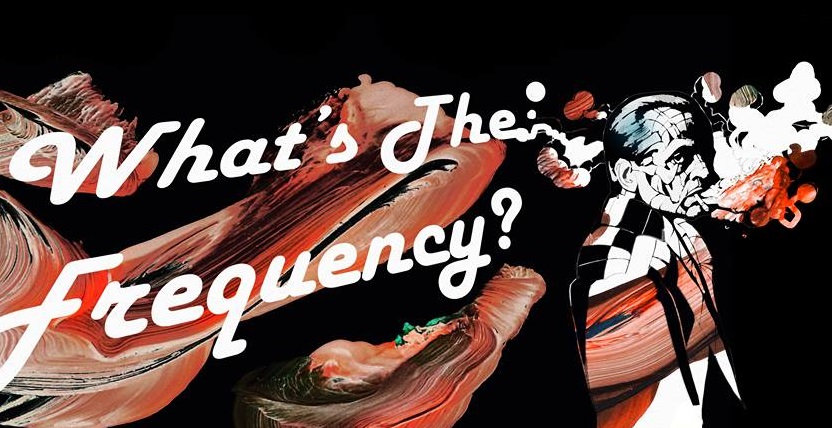

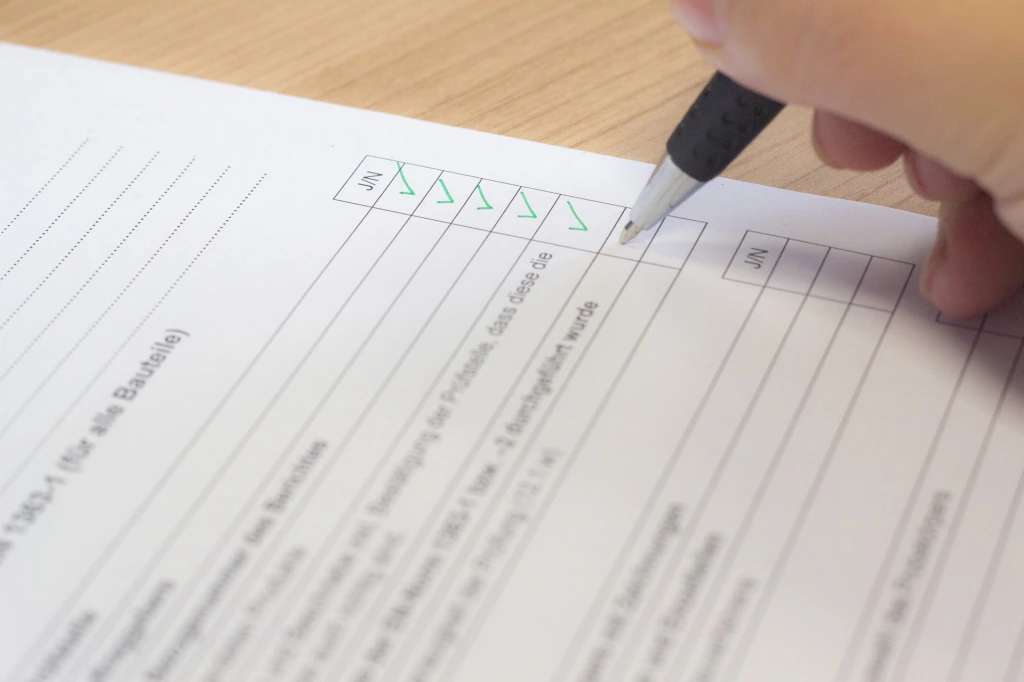
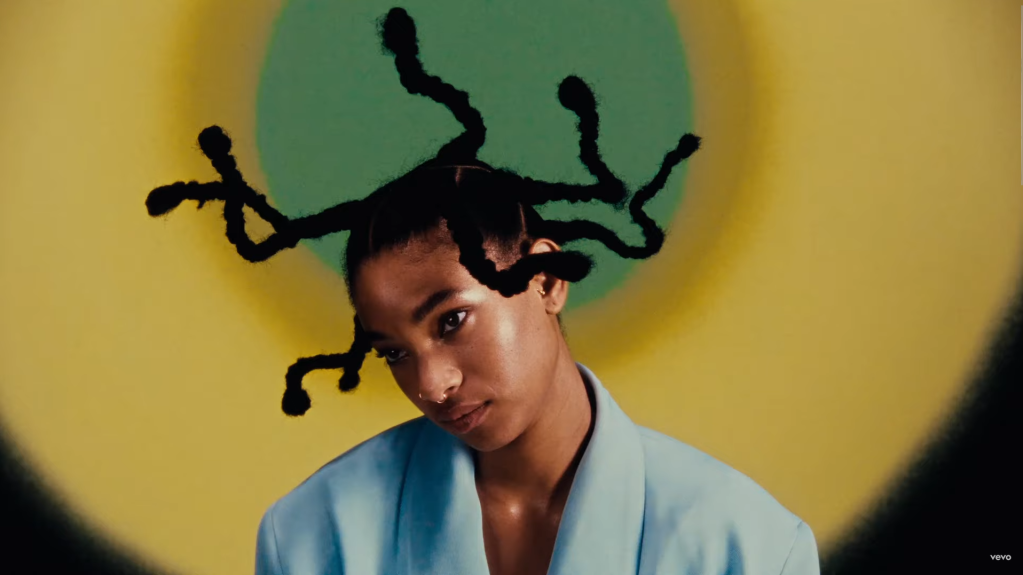
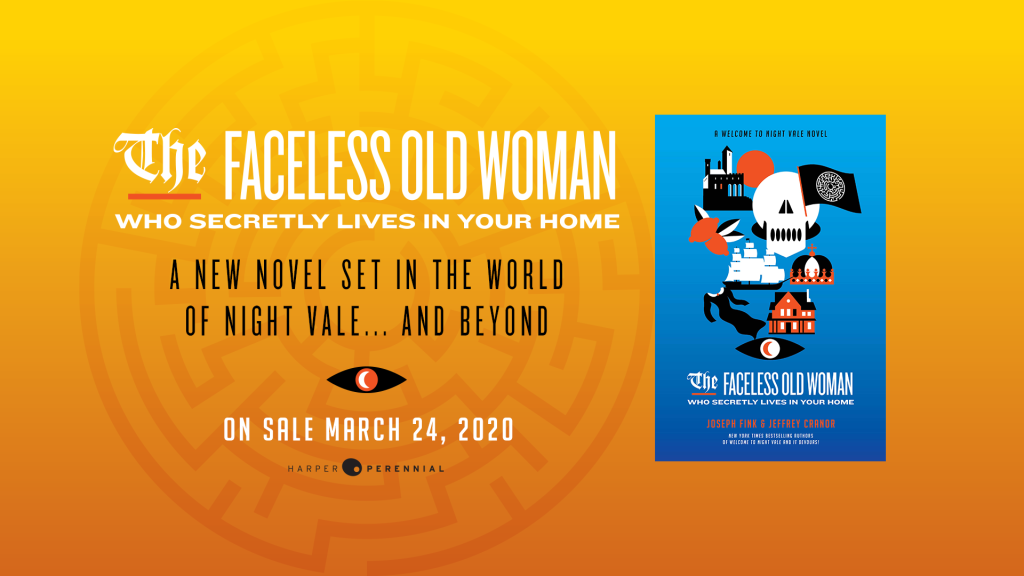
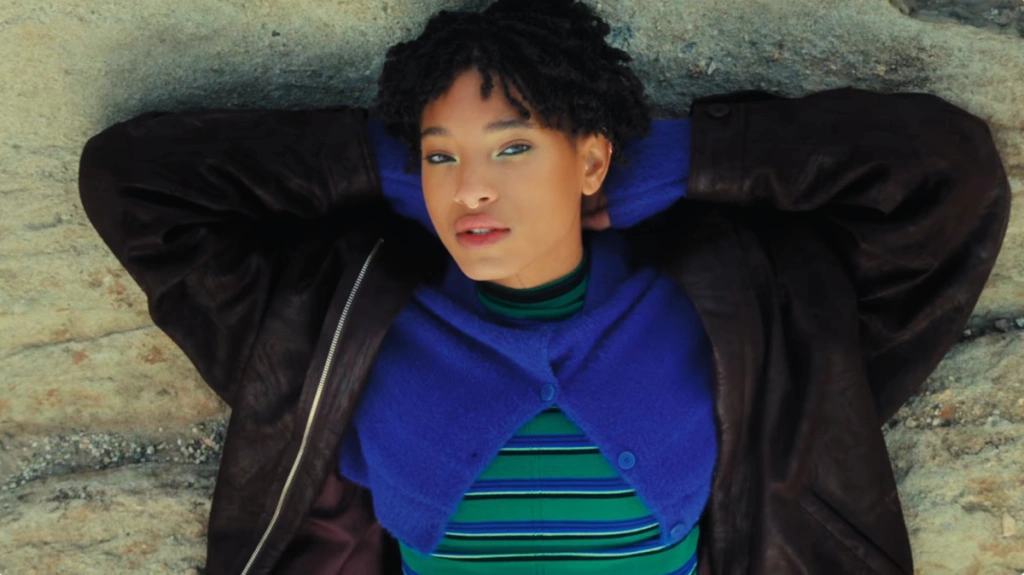


Leave a comment